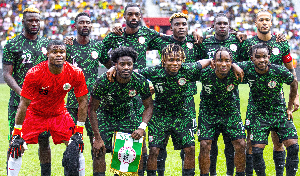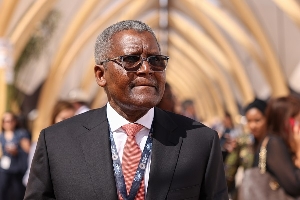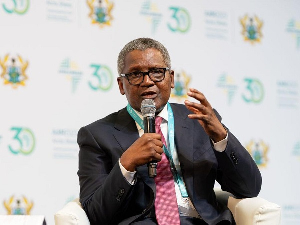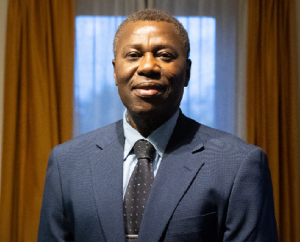Accra, June 17, GNA - Mr Joss Aryee, a Journalist, has prayed the National Reconciliation Commission (NRC) to ask soldiers involved in the demolition exercise of the Makola Market in 1979, to account for the things they looted during that exercise.
Mr Aryee, now working with Ghanaian Chronicle newspaper, on Thursday gave a graphic account of the destruction of the Market in August 1979, following the June 4, 1979 uprising at the public hearing of the Commission on Thursday in Accra.
He described the day as a rough day, and said to date, where the soldiers took the large sums of money and wares they looted was still not established.
The Witness, who said he was then a Senior Reporter of the Ghana News Agency (GNA), attached to the Secretariat of the erstwhile Armed Forces Revolutionary Council (AFRC), said he together with a colleague, Mr Alex Baning, now in Canada, covered the demolition exercise. Mr Aryee said one Capt Kpani Addy, led the exercise and the second in command was Lt Blood Dzraku.
Witness said Lt Dzraku collected the money, cooking utensils and textiles and put them in his 504 Peugeot Saloon car drove away. "When I asked him where they were taking the money and goods to, he brushed me off and said it was none of my business", Witness said. Witness said Lt Dzraku knew him very well because they had been mates at the Ghana Institute of Journalism (GIJ).
Witness said thugs from Tudu and Swalaba, both in Accra, joined the soldiers and took away fridges, bails of cloth and other items. "The whole thing was a booty for the boys," Mr Aryee said. The soldiers said they were taking the wares to the Trade Fair, Legon and Burma Camp, but they were not there when they checked. After the looting, a bulldozer entered the market, and razed it down "like knife through butter" leaving only the Accra Central Mosque standing.
Mr Aryee said about 150 soldiers were involved in the exercise. He said he witnessed the shooting at one of the thugs, who managed to run away, and added that he also heard that others were also shot.
Witness said a radio announcement for the traders to remove their items came rather late in the evening, during curfew hours. At the time the traders went to remove their wares, soldiers had cordoned off the Market. They stood at the gates, and prevented them from entering.
"Nobody could really go there. Before the notice was given, soldiers had been positioned there. The traders could not take out their items", Witness said.
Some of the women, who the Witness said he had known, died and others had mental problems.
Witness stated that a fair coloured man sat on a bulldozer that razed the Market.
Mr Aryee, who said he also covered the execution of the Generals, said he missed the coverage of the executions of General Kutu Acheampong and General Utuka, because they were executed at dawn, when it had been announced that the execution would take place in the morning. In an answer to a question from the Commission, Mr Aryee said the days after the June 4 1979 were "the days when the gun was the officer".
Mr Christian Appiagyei, a Member of the Commission described the event as naked looting at a time when the then regime said it was doing house-cleaning exercise.
Another Witness, Madam Comfort Akweley Mensah said her daughter, Karleybi Quarshie, aged nine by then, suffered from a bullet from the Navy at Tema in 1979, but the Navy gave her a compensation of 200,000 cedis in 1987.
Her daughter limped to sit beside her in another seat as Madam Mensah gave evidence.
Madam Mensah said her daughter was made to undergo two operations, to remove the pellets, which went into the stomach and affected the spine. She was also hospitalised for more than one and half years.
She said her daughter became paralysed at the time she was discharged and had to undergo a kind of physiotherapy treatment, for sometime. Witness said medical treatment was also recommended, but the Navy, which accepted responsibility, only paid 200,000 as compensation in 1987.
General News of Thursday, 17 June 2004
Source: GNA












